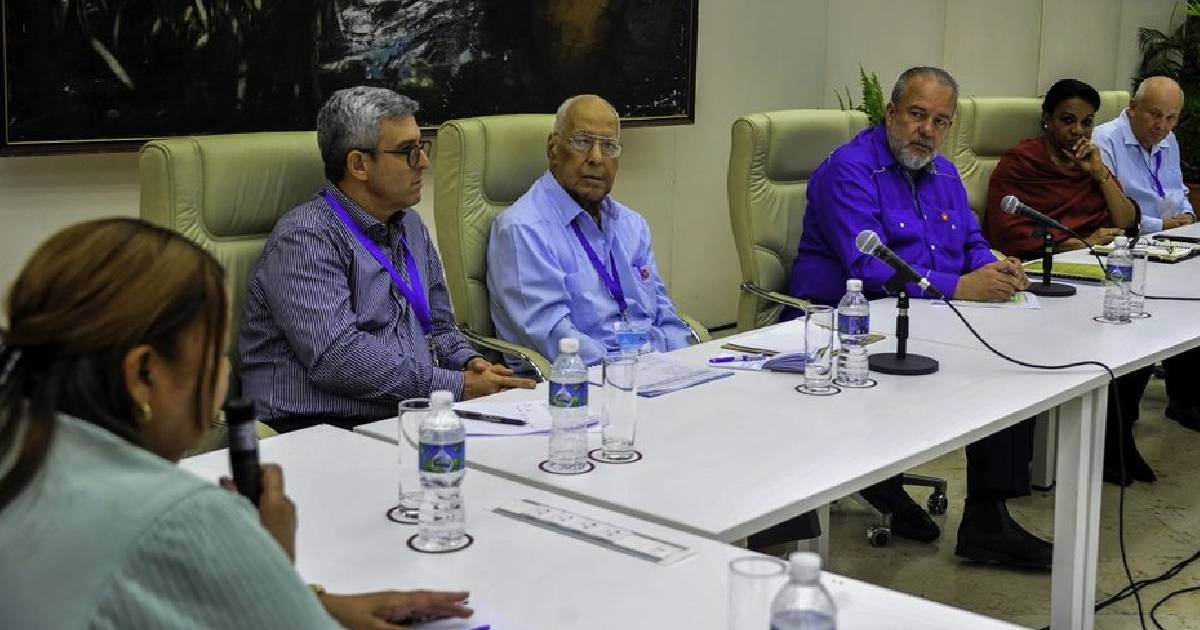The Cuban government has added a new front to its ongoing battles within the country due to its ineffective economic policies. Now, they have launched a crusade against digital sales. "Act with rigor in all territories and identify sales promoted on digital sites or conducted at home to evade inspection and ignore the temporary price regulation," stated the Cuban Government profile on X, as directed by Cuban Prime Minister Manuel Marrero Cruz to the nation's governors.
"We are not against this service, but it must comply with established prices. We need to publicize the results of our enforcement not only so that the people see we are defending them but also so that violators know we're serious," Marrero Cruz ordered a day after the National Assembly announced stringent measures against the private sector.
This action is part of the regime's escalating efforts to target micro, medium, and small businesses (mipymes), which they accuse of charging "exorbitant, speculative, and abusive prices for basic goods and services."
"In Havana, we intervened in a case involving a digital platform. We identified the owners and those making the sales. They were summoned, given a warning, and right there, they lowered the price of chicken. So, it’s possible to work with those conducting digital sales too," said Vladimir Regueiro Ale, Minister of Finance and Prices.
According to the state-run digital site Cubadebate, the minister mentioned that penalties under Decree 30, "aimed at combating undisciplined conduct and preventing abusive and speculative pricing," can range from 5,000 to 15,000 pesos for tariff and price violations, but can go up to 18,000 pesos.
The official also explained, "The numbers show that we were asleep on this issue, demonstrating that we hadn't applied the necessary rigor and follow-up."
During his closing speech at the third regular session of the X Legislature of the National Assembly of People's Power (ANPP), island leader Miguel Díaz-Canel confirmed the regime's shift in its tentative economic opening policy and reaffirmed its intention to subject the activities of "new economic actors" to state directives and centralized economic planning.
"It's time to move beyond diagnostics and take action," was the phrase used by the president to unleash actions against small private businesses in Cuba.
In the same meeting with Cuban deputies, the Cuban prime minister reported that the government had revoked the import licenses of nearly a third of the private businesses authorized to import.
"We decided to close this faculty to 24 of the 73 approved companies for importing, due to low activity levels and poor performance," noted the bureaucrat.
Similarly, significant changes were announced in regulations for mipymes and self-employment.
Impact of Cuban Government's Crackdown on Digital Sales
This section aims to address common questions about the Cuban government's recent actions against digital sales and their broader impact on the economy.
Why is the Cuban government targeting digital sales?
The government claims that digital sales often evade inspection and ignore temporary price regulations, leading to speculative and abusive pricing of basic goods and services.
What penalties can businesses face for violating price regulations?
Under Decree 30, penalties can range from 5,000 to 15,000 pesos for tariff and price violations, but can go up to 18,000 pesos.
How has the government acted against digital platforms in Havana?
In Havana, authorities identified the owners and sellers of a digital platform, summoned them, issued warnings, and successfully lowered the price of chicken as a result.
What changes were announced for mipymes and self-employment regulations?
Significant changes in regulations were announced, including the revocation of import licenses for nearly a third of the private businesses authorized to import, citing low activity levels and poor performance.
